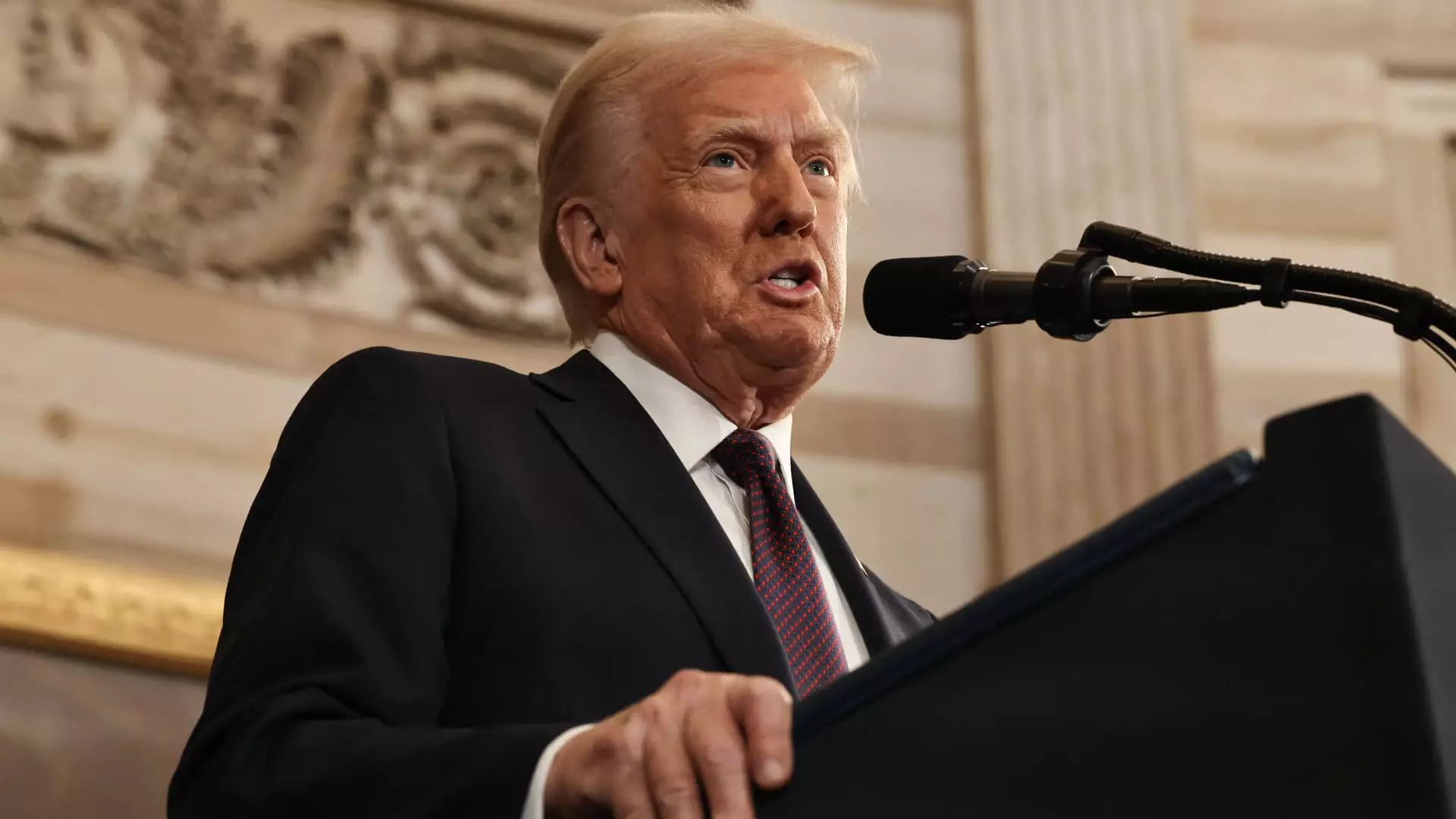In a stunning betrayal of his earlier commitments, President Donald Trump’s recent military actions against Iran reveal a starkly different reality from the “peacemaker” narrative he has woven throughout his presidency. Just five months prior, Trump positioned himself as a leader keen on ending conflicts, boasting about a legacy centered on diplomacy and unity. Now, with strategic strikes on Iran’s nuclear facilities—notably in Fordo, Natanz, and Isfahan—the mirror cracks, exposing the hypocrisy that underpins his foreign policy.
Trump’s inauguration speech resonated with promises of successful peacemaking: “We will measure our success not only by the battles we win but also by the wars that we end – and perhaps most importantly, the wars we never get into.” Fast forward to now, and one cannot help but question the credibility of such statements. How ironic is it that the commander-in-chief, who once pledged to steer away from military engagements, initiated a direct assault on Iran during a period of heightened tensions in the region?
Promises Undermined
Only days before the offensive, Trump hinted at possible diplomatic resolutions, suggesting that the United States could wait “two weeks” before deciding on further action. Such a stance implied a strategic pause, a flicker of hope for dialogue in a fraught situation. Instead, his abrupt decision to deploy military force contradicts both his past proclamations and his electoral promises to prevent chaos in the Middle East. The two sides of Trump’s foreign policy are growing ever more irreconcilable, challenging his supporters to reconcile the ideology of a peacemaker with the actions of a warmonger.
Moreover, rhetoric surrounding Iran’s nuclear ambitions has been a staple of Trump’s narrative since his departure from the Joint Comprehensive Plan of Action (JCPOA) in 2018. While Trump revels in presenting his withdrawal from the nuclear deal as a grandmaster move—claiming it laid the groundwork for historic accords—his recent military escalation makes it clear that his approach is not about diplomacy but domination. The aggressive military stance stands as a glaring contradiction to his claims of pursuing peace, revealing the hollowness of assurances he has made to promote stability.
The Cost of Conflict
The implications of military action extend beyond political theater; they carry the weight of human lives and geopolitical stability. Reports of casualties and infrastructure destruction following the U.S. attacks have not gone unnoticed, and the chatter among analysts suggests that these actions could provoke further retaliation from Iran. Upon reviewing Trump’s controversial decisions, one must question who truly benefits from this conflict. Is it the American public seeking solace in peace, or political elites eager to protect their power through warfare?
The consequences of Trump’s recent actions also raise critical concerns about America’s global role. Historically, the U.S. has positioned itself as a bulwark against tyranny, often employing military action in pursuit of national security. While the intent may seem noble on the surface, the reality is a troubling trajectory toward perpetual involvement in foreign conflicts. Why sacrifice the promise of diplomatic engagement for routine bombings that generate more chaos than resolution?
Examining the Legacy of Leadership
As the narrative unfolds, it must serve as a cautionary tale against blind allegiance. Trump’s valorization of military might starkly contrasts with the ideals of diplomacy that characterized the early months of his presidency. This inconsistency should prompt voters and policymakers alike to reevaluate their approach to leadership, recognizing that genuine governance demands more than just powerful slogans—it requires steadfast commitment to the principles of peace and coexistence.
In a political climate rife with division, exacerbated by decisions that prioritize might over understanding, it becomes imperative to challenge and hold leaders accountable. The façade of Trump as a unifier crumbles under the weight of his actions, leaving in its place a chilling uncertainty about the future of American engagement abroad. As the world watches, we are left to ponder: does Trump’s government truly seek peace, or are we witnessing the dawn of an era dominated by empty promises and aggressive posturing?


Leave a Reply